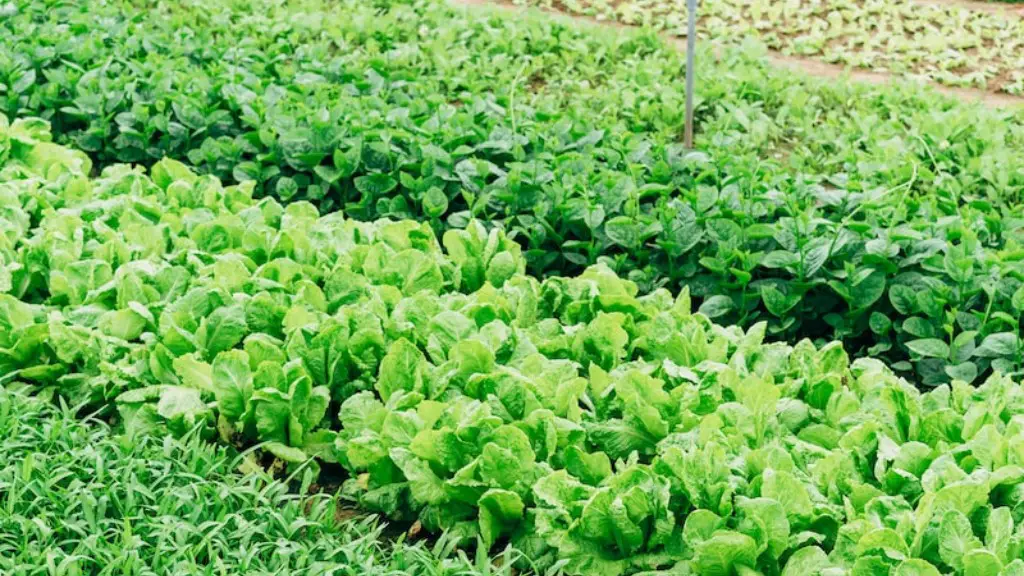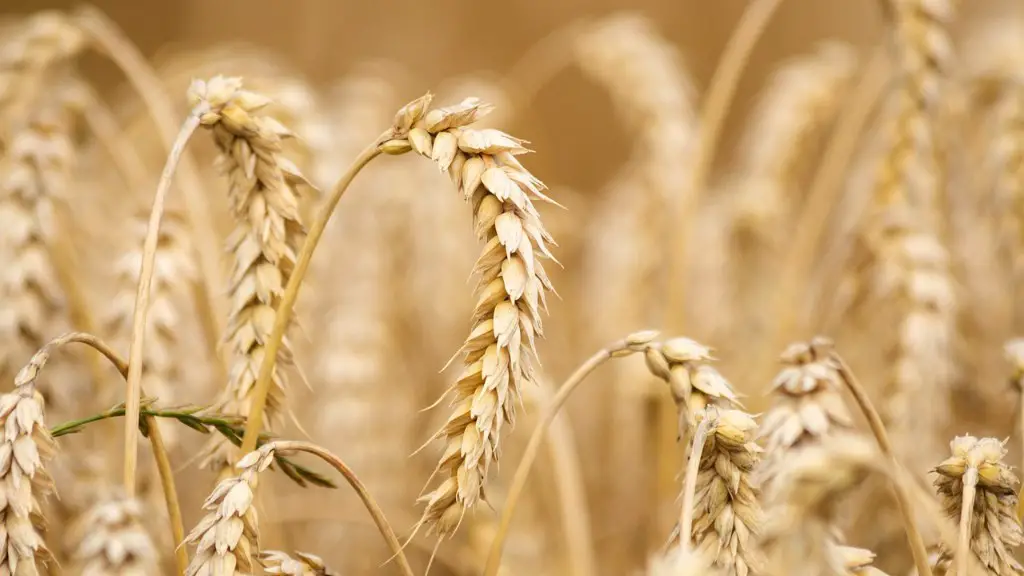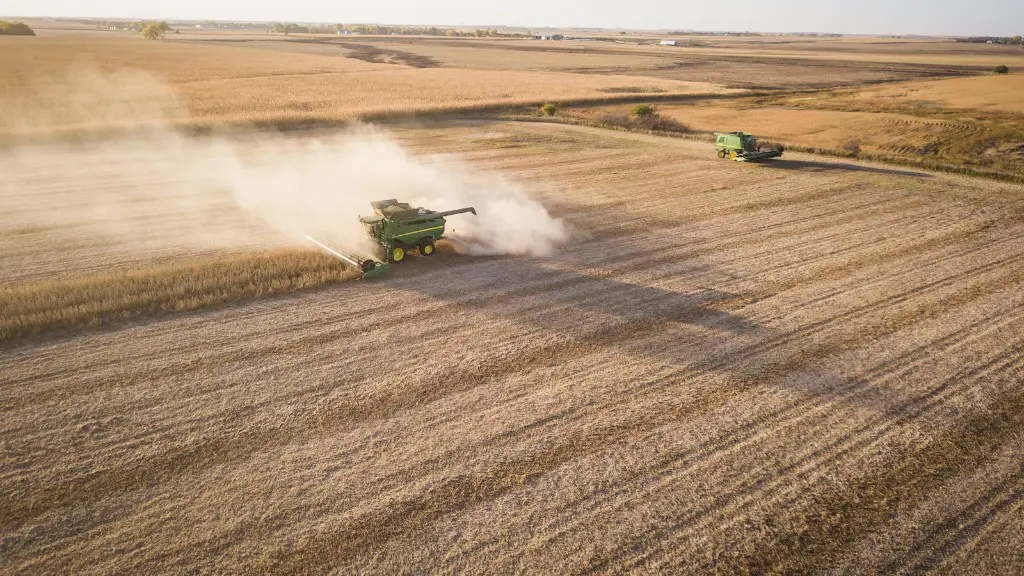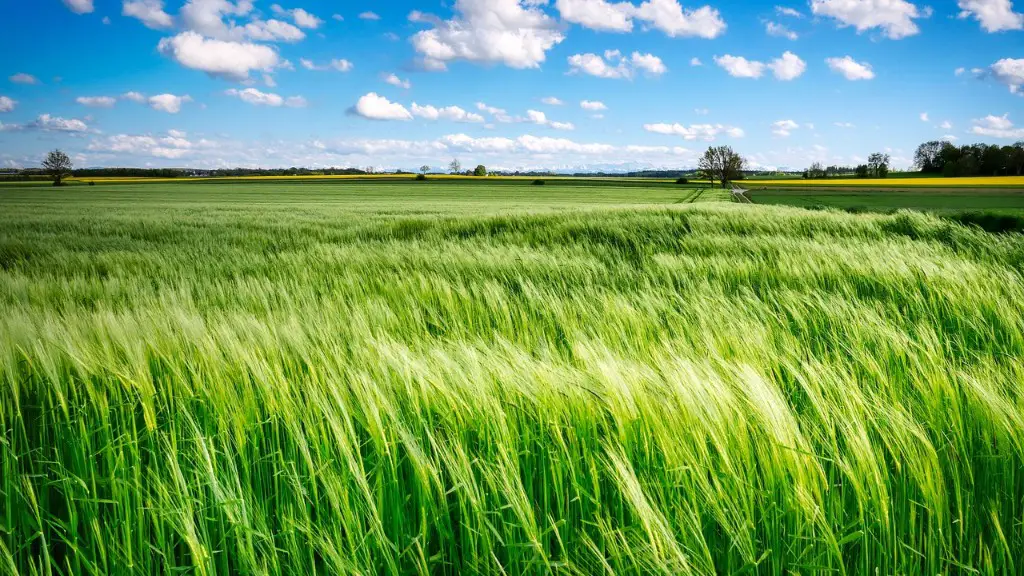Agriculture is the science, art and practice of cultivating plants and livestock. It is a major economic activity in many parts of the world, and provides the basis of most peoples’ livelihoods. Agricultural processes include crop cultivation, animal husbandry, and various types of mechanization. Agriculture is one of our oldest pursuits, with evidence of it stretching back to the Neolithic period.
Agriculture is an important aspect of human life. It is responsible for providing us with the basic necessities of life such as food, shelter, clothing, and medicines. It also plays a major role in our economy. The production of agricultural products constitutes a major portion of global economic activities. It provides employment to a large section of the rural population and provides income to farmers who grow food and other crops.
Agricultural processes are driven by the need to provide food, fuel, clothing, and other essential items for human consumption. Farmers employ practices such as planting, harvesting, and irrigating crops, and raising and caring for livestock that allow agricultural products to be produced efficiently, with maximum yield and minimum impact on the environment.
Agricultural production involves the use of resources such as land, water, energy, and capital to produce food and other agricultural products. The development of practices that increase agricultural production, enhance resource efficiency, and reduce environmental impacts is an important component of sustainable agriculture. Additionally, agricultural science is centered around understanding and manipulating the environment, biology, genetics, and biotechnology to produce higher yielding, more nutritious, and more resilient crops.
Agriculture has also played an important role in cultural development, as it has been utilized throughout history to shape communities, religions, and economies. Furthermore, agriculture has been used as a tool of colonization, exploitation, and dispossession, leading to the destruction of social, economic, and ecological systems.
In conclusion, agriculture is a complex pursuit that encompasses a variety of practices and processes to produce food, fuel and other essentials. It is an important economic activity, with implications for human and environmental health. It also has long been embedded in various cultural, social, and economic systems, and continues to be a driving force today.
Agricultural Practices
Agricultural practices involve the application of resources to produce food and fiber. Those resources include land, water, energy, labor, and capital. Additionally, technological advancements have allowed for advances in the production of quality products, with emphasis on improved nutrition, increased yields, and decreased environmental impacts.
Crops and livestock cultivation is the cornerstone of agricultural production. Farmers’ decisions about what to grow, and when and how to do it, play a Significant role in determining the environmental, economic, and social outcomes of production. Farmers employ a variety of practices — such as crop rotation, the use of inputs, and soil conservation — to improve the productivity of the land. In addition, animal husbandry involves the breeding and management of livestock to ensure optimal health and productivity.
Agricultural production is highly capital-intensive. Machinery and technology are used to reduce labor and maximize efficiency, while investments are also made in research and development of new methods and products. Conservation agriculture is an example of a technology-driven agriculture system that seeks to optimize inputs, increase efficiency, reduce environmental impact, and secure harvests.
Agricultural practices also aim to improve nutrition. Through the development of fortification and biofortification, nutrition of food crops has been improved. Growing organic crops, utilizing home gardens, and conserving biodiversity are other potential ways to improve nutrition in agricultural systems.
Agricultural systems exist in various contexts with different social, economic, and environmental conditions. Farmers employ various strategies to respond to such conditions, and face risks from climate change, water scarcity, pests and diseases, and market volatility.
Agricultural Technology
Agricultural technology involves the use of machines and tools to enhance efficiency and productivity. Developments in agricultural science have allowed for the production of higher-yielding and higher-quality products. Agricultural machinery has allowed for the mechanization of agricultural practices, such as planting, harvesting, and irrigation. Additionally, advances in technology have allowed for increased precision in crop and livestock production, the management of pests and diseases, and the use of inputs in production.
Advances in biotechnology have also allowed for the manipulation of plants and animals on a molecular level to improve yield and quality. Genetically modified organisms are increasingly used in agricultural production — primarily in commercial crops — to improve resistance to pests and diseases, and to enhance nutrition. Furthermore, technical advancements have facilitated the use of data-supported farming that uses information and communication technologies to optimize decision-making.
Agricultural technology has advantages, such as improved productivity and quality, reduced labor, and increased sustainability. However, such technology is often expensive, and may be beyond the reach of many farmers. Furthermore, the use of technological advances introduces various ethical considerations and can have unintended consequences.
Agricultural Economics
Agricultural economics is an applied field of economics that seeks to understand the behavior of producers, consumers, and institutions to produce sustainable and efficient agricultural outcomes. Agricultural economics is focused on the analysis of markets — including price, supply and demand — as well as the distribution of income and wealth, and the policies that shape agricultural production and consumption.
Agricultural economics is also concerned with the implications of agricultural production for environmental and resource issues. Additionally, it focuses on issues related to poverty, food security, rural development, and international trade in agricultural products. By gaining a better understanding of agricultural markets and policies, agricultural economists strive to develop strategies and policies to address global challenges, while ensuring sustainable development.
The study of agricultural economics is important for providing a deeper understanding of the economic, social, and environmental aspects of our food systems. It enables us to identify areas of economic incentive and develop solutions to ensure the sustainability of our food systems and the livelihoods of farmers.
Environmental Implications of Agriculture
Agricultural production has a significant impact on the environment, both in terms of positive and negative effects. Crop and livestock production are a major source of green house gas emissions, and can impact water availability and quality. Additionally, intensive farming practices can lead to soil degradation, and can be a major source of air pollution. Agriculture also has implications for biodiversity, and has been a major cause of deforestation.
Environmental sustainability is a major concern for agriculture. There is a need to shift towards production systems that are more sustainable, and reduce environmental impacts. This requires the adoption of practices such as conservation agriculture, the use of less harmful inputs, and the use of precision agriculture techniques. Additionally, initiatives such as agroforestry, organic agriculture, and other agroecological approaches could be beneficial in reducing the environmental impacts of agriculture.
The development of sustainable agricultural practices and systems can be critical in reducing agricultural impacts on the environment. Such initiatives also have the potential to reduce poverty, improve nutrition, and ensure the livelihoods of farmers.
Global Implications of Agriculture
Agriculture has been a major economic driver throughout history. It has impacted the development of communities and societies, and its effects can be felt on a global scale. Agriculture has been a dominant force in population growth, as well as in global food security, nutrition, and poverty reduction. Additionally, agricultural production is a key factor in global trade, both in terms of imports and exports.
Agricultural production has consequences for the environment and for climate change. Agricultural production systems can be an important factor in determining global emissions, and it has been linked to land use change, water scarcity, and the depletion of biodiversity.
Agricultural policies have an effect on global trade, and have been used as a tool of colonization and exploitation. There is an urgent need to reform global agricultural policies and systems to ensure sustainability, equity, and food security. Additionally, there need to be equitable investments in agricultural research and development, as well as in support services to ensure that farmers can access the technologies and resources they need to produce sustainably.
Agriculture can also be a tool for social and economic inclusion. Through agricultural production — as well as food production and processing — women, marginalized groups, and people living in rural areas have access to economic opportunities and improved food security.





